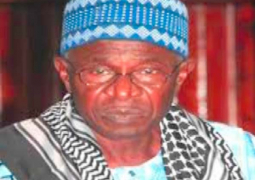The criminal trial for alleged theft and abuse of office involving Karamo Bojang, the former deputy Director of the National Drug Enforcement Agency (NDEA), commenced yesterday at the Banjul Magistrates’ Court before acting-Principal Magistrate Alagba.
Testifying as the first prosecution witness, Mbye Njie, NDEA Commissioner of Operations, told the court that he is a narcotics officer attached to the NDEA office in
He said he knew the accused person, Karamo Bojang, as the former deputy director of the NDEA.
“In May 2006, I was the assistant station officer at the Serekunda Police Station. I received a call from the accused person informing me that he had directed three Nigerian gentlemen to me who had a problem,” he said.
“Upon their arrival at the station, one of them told me that his brother was found dead in his residence at Ebo-Town. I told him that this is not a drug matter and our responsibilities are entirely on drugs and its related matters,” he told the court.
Njie further revealed that he later escorted the three Nigerians to the then officer commanding the drug enforcement agency at the Serekunda Police Station to narrate their story.
He said that after the narration, he invited the Criminal Investigation Department (CID) to visit the scene.
“At the residence of the deceased person in Ebo-Town, the team opened the gate and we found one Samuel Ocka dead. The team inspected the deceased and found a passport in his back pocket bearing a Giboro border stamp,” Njie further told the court.
Commissioner Njie added that the dead body was later escorted to the Royal Victoria Teaching Hospital (RVTH) in Banjul for a postmortem, and the Nigerian Embassy was invited to witness the postmortem exercise.
Still testifying, the witness told the court that during the postmortem, they found 67 tablets of suspected cocaine in the deceased person’s stomach, adding that an investigation was subsequently mounted by the personnel of the NDEA and CID officers in the house of the deceased, and one motor bike was recovered.
He said the suspected cocaine tablets were later handed over to the accused person, while the motor bike was taken to the Serekunda Police Station, pending further investigation.
Further testifying, the witness said that the accused person later said the authorities had destroyed the suspected drugs.
“I said to him that cannot be, because investigation into the matter was not completed into those drugs, and they could not be destroyed by the authorities, and that the court had never given any order for destruction of the exhibits,” he further explained.
When asked by the state prosecutor about the process of destroying exhibits by the authorities, the witness said the process of destroying exhibits was that the exhibits’ keeper would record everything in the book and pack them in the archive, and the accused person handled the key to the archive.
When the authorities announce the destruction of suspected drugs, dignitaries and religious leaders would be invited by the agency to witness their destruction.
He said the accused person and the exhibits’ keeper would then take out all the drugs for destruction from the archive, and take them to the destruction grounds.
Hearing into the case was at this stage adjourned till 4 May 2011.



